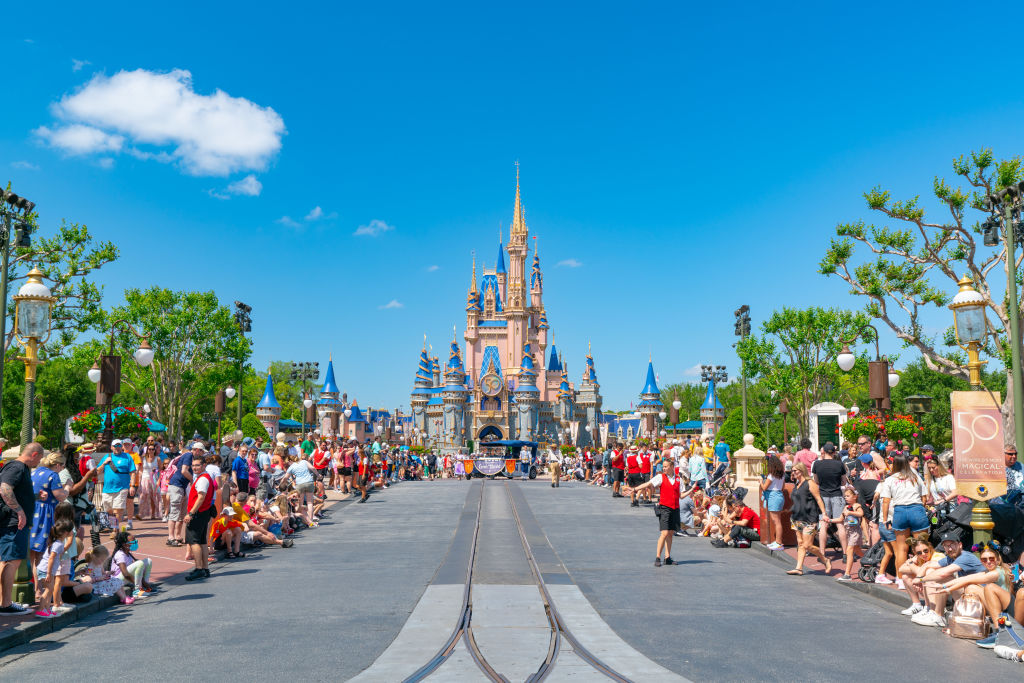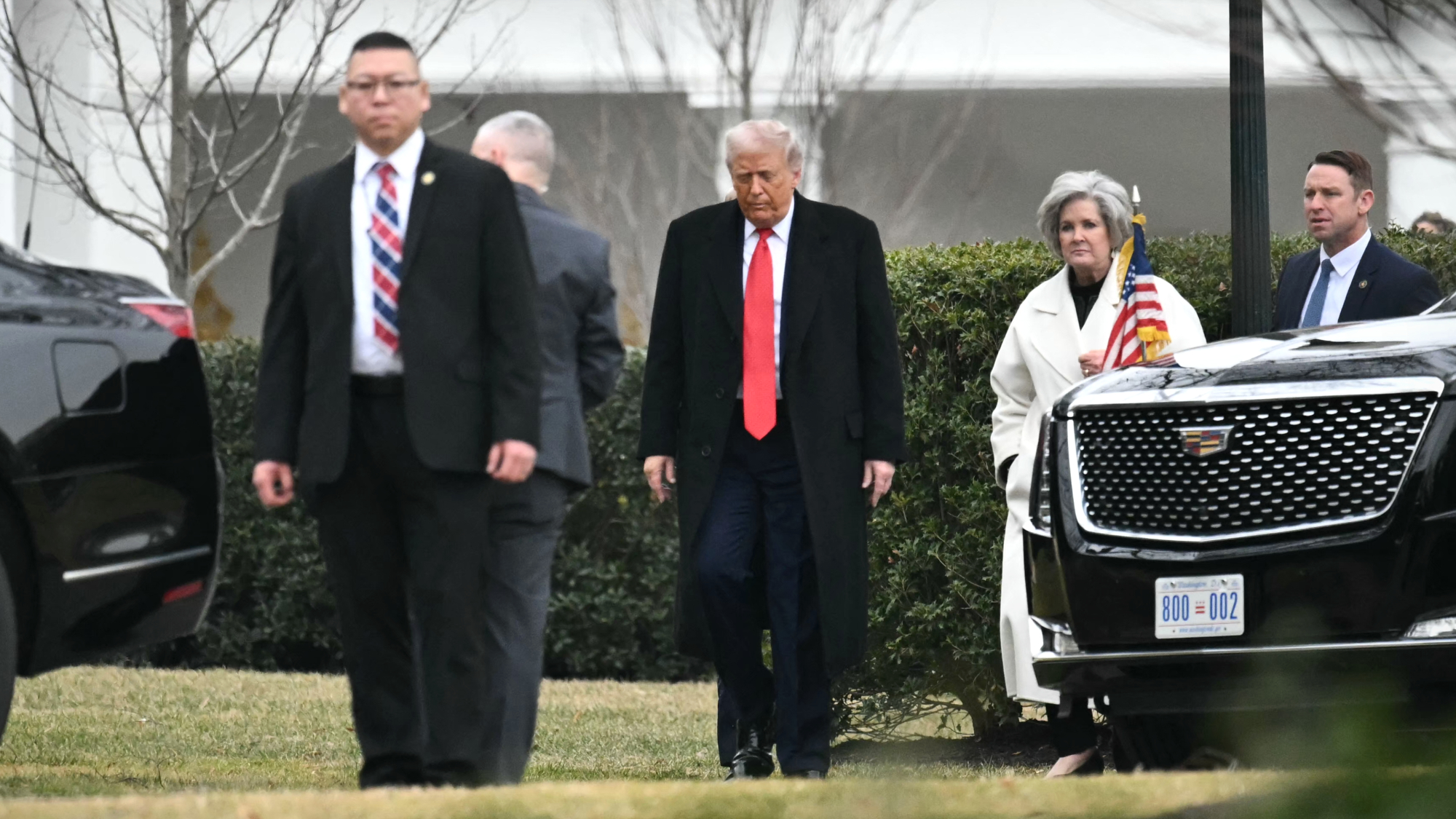DeSantis vs. Disney: Has the governor gone too far?
He told Disney 'there's a new sheriff in town,' but is he flying in the face of limited-government Republicanism?


A free daily email with the biggest news stories of the day – and the best features from TheWeek.com
You are now subscribed
Your newsletter sign-up was successful
Florida Gov. Ron DeSantis (R) has been at war with the Walt Disney Company ever since the entertainment conglomerate criticized the governor's controversial so-called "Don't Say Gay" legislation. One year later, the governor initially claimed a huge win in his crusade, signing legislation that would have given him a wide swath of powers over the company's iconic Orlando theme park, Walt Disney World.
The bill, The Associated Press said, gave DeSantis control of the Reedy Creek Improvement District, which serves as the governing jurisdiction and tax district for the Walt Disney World Resort complex. The AP noted that the new law requires DeSantis to "appoint a five-member board to oversee the government services that the Disney district provides." Board members were previously named through Disney entities.
However, the Mouse House did not go quietly, as while DeSantis was enacting this new legislation, Disney quietly reached an agreement with its outgoing board members that stripped DeSantis' board of almost all power. Under these guidelines, DeSantis' handpicked members cannot do anything beyond maintaining the park's basic infrastructure. The company was not done taking action, though, as Disney also sued DeSantis, claiming his steps were a violation of Disney's First Amendment rights because the governor installed his handpicked board without permission. That case is ongoing, though DeSantis has taken steps to have it tossed and has also brought a lawsuit of his own against Disney.
The Week
Escape your echo chamber. Get the facts behind the news, plus analysis from multiple perspectives.

Sign up for The Week's Free Newsletters
From our morning news briefing to a weekly Good News Newsletter, get the best of The Week delivered directly to your inbox.
From our morning news briefing to a weekly Good News Newsletter, get the best of The Week delivered directly to your inbox.
Disney has also canceled a $1 billion investment project in Florida that would have brought 2,000 jobs to the Orlando area, the Pensacola News Journal reported. The outlet described the decision as "a major blow to Central Florida's economy."
What are commentators saying?
President Biden previously criticized DeSantis' initial attempts to take control of Disney, saying the efforts are evidence that the "far right has taken over the [Republican] party." And even some Republicans think DeSantis has gone too far, and even former Vice President Mike Pence told CNBC that the governor's actions are "beyond the scope of what I as a conservative, limited-government Republican would be prepared to do."
But the initial legislation actually wasn't as far-reaching as DeSantis had initially hoped, The Financial Times wrote. It "fell far short of his original goal" of dissolving the district entirely, and instead amounts to little more than a name change. But he did "secure a significant victory" in his new-found power to appoint the district's entire board of directors. He has already "packed the board with political allies," and they could weaponize their power to approve infrastructure projects as "leverage" over the company if they are allowed to maintain control.
The governor's plan seems to go against typical Republicanism, legal expert and MSNBC commentator Tristian Snell suggested. "For almost 100 years, the right aimed to give companies more rights — including on speech," Snell wrote on Twitter. "DeSantis is undoing all that."
A free daily email with the biggest news stories of the day – and the best features from TheWeek.com
What's next for Disney?
Disney originally pledged to abide by the new rules, even as it was crafting a workaround from DeSantis. In a statement obtained by Variety, the company said it was "ready to work within this new framework," adding that it would not try to challenge Florida's laws in court. However, even as this statement was being released, it is clear that Disney was working behind the scenes to sue the governor for his actions.
Despite the legal jostling, Disney told CNN that it was holding steadfast, and that all previous agreements with the state "were appropriate, and were discussed and approved in open, noticed public forums in compliance with Florida's Government in the Sunshine law." So it seems that the fight between Disney and DeSantis may just be getting started.
May 22, 2023: This article has been updated to reflect new developments.
Justin Klawans has worked as a staff writer at The Week since 2022. He began his career covering local news before joining Newsweek as a breaking news reporter, where he wrote about politics, national and global affairs, business, crime, sports, film, television and other news. Justin has also freelanced for outlets including Collider and United Press International.
-
 Political cartoons for February 21
Political cartoons for February 21Cartoons Saturday’s political cartoons include consequences, secrets, and more
-
 Crisis in Cuba: a ‘golden opportunity’ for Washington?
Crisis in Cuba: a ‘golden opportunity’ for Washington?Talking Point The Trump administration is applying the pressure, and with Latin America swinging to the right, Havana is becoming more ‘politically isolated’
-
 5 thoroughly redacted cartoons about Pam Bondi protecting predators
5 thoroughly redacted cartoons about Pam Bondi protecting predatorsCartoons Artists take on the real victim, types of protection, and more
-
 Why are election experts taking Trump’s midterm threats seriously?
Why are election experts taking Trump’s midterm threats seriously?IN THE SPOTLIGHT As the president muses about polling place deployments and a centralized electoral system aimed at one-party control, lawmakers are taking this administration at its word
-
 House votes to end Trump’s Canada tariffs
House votes to end Trump’s Canada tariffsSpeed Read Six Republicans joined with Democrats to repeal the president’s tariffs
-
 How are Democrats trying to reform ICE?
How are Democrats trying to reform ICE?Today’s Big Question Democratic leadership has put forth several demands for the agency
-
 Is Alex Pretti shooting a turning point for Trump?
Is Alex Pretti shooting a turning point for Trump?Today’s Big Question Death of nurse at the hands of Ice officers could be ‘crucial’ moment for America
-
 Halligan quits US attorney role amid court pressure
Halligan quits US attorney role amid court pressureSpeed Read Halligan’s position had already been considered vacant by at least one judge
-
 House approves ACA credits in rebuke to GOP leaders
House approves ACA credits in rebuke to GOP leadersSpeed Read Seventeen GOP lawmakers joined all Democrats in the vote
-
 Vance’s ‘next move will reveal whether the conservative movement can move past Trump’
Vance’s ‘next move will reveal whether the conservative movement can move past Trump’Instant Opinion Opinion, comment and editorials of the day
-
 What have Trump’s Mar-a-Lago summits achieved?
What have Trump’s Mar-a-Lago summits achieved?Today’s big question Zelenskyy and Netanyahu meet the president in his Palm Beach ‘Winter White House’
